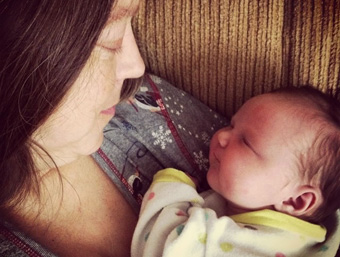“Can tubal reversal surgery be done with an epidural?”

Epidural needle being inserted at start of surgery
Women ask this question because they are fearful of being ‘put to sleep’ with general anesthesia.
Many women are familiar with epidurals because of child birth, c-sections, and tubal ligation.
Epidural anesthesia can cause more complications than general anesthesia. Epidural anesthesia may not the best choice for outpatient surgery.
Although tubal reversal can be done with epidural anesthesia, our experience has demonstrated tubal reversal under general anesthesia is safer and has less side effects.
What Is Epidural Anesthesia
An epidural is a type of anesthesia that uses a small plastic tube (called an epidural catheter) inserted into the patient’s back and near the spinal nerves. This allows numbing medication, or anesthesia, to be given near the nerves inside the spinal canal.

Area where epidural catheters are inserted
Image complements of Blausen.com staff. “Blausen gallery 2014”. Wikiversity Journal of Medicine 1 (2). doi:10.15347/wjm/2014.010. ISSN 20018762
To place an epidural, a doctor must insert a large needle through the skin and between the bones of the spine. The small catheter is placed inside the larger metal needle and the catheter is pushed near the nerves in the spinal column. The needle is then removed and the catheter is allowed to remain during the surgery. Numbing medication is then continually given through this catheter during surgery. In some cases the catheter can remain in place for several days.
The main benefit of an epidural is anesthesia can be given directly to the nerves and patients can avoid general anesthesia side-effects. If needed, the epidural catheter can be left in place for several days to decrease pain experienced after surgery is completed.
Can Tubal Reversal Surgery Be Done With An Epidural?
Technically tubal reversal can be done with epidural anesthesia but only if the surgery is done in a hospital and patients stay overnight.
The main reason for using an epidural during childbirth is to avoid general anesthesia.
When a pregnant patient is given general anesthesia the anesthesia will affect the baby. The baby may have lower APGAR scores and if the baby is unable to breath because of general anesthesia then this can cause some very serious problems.
More information: Best Anesthesia For Tubal Reversal Surgery
So…epidurals are used during childbirth because epidurals allow newborn babies to avoid being exposed to general anesthesia.
Epidural Complications
If tubal reversal surgery is performed with an epidural, patients are at at higher risk of epidural complications.
 Pain during tubal reversal surgery. Epidurals don’t always work. Sometimes they are ‘patchy’ and only numb certain areas. This means you could be numb in most of your abdomen but feel pain where the incision is being made or pain when the uterus or Fallopian tubes are being touched.
Pain during tubal reversal surgery. Epidurals don’t always work. Sometimes they are ‘patchy’ and only numb certain areas. This means you could be numb in most of your abdomen but feel pain where the incision is being made or pain when the uterus or Fallopian tubes are being touched.
If this happens during surgery, a patient could have full sensation of what is happening.
Spinal headaches. Epidurals can cause leakage of the spinal fluid from the spinal canal. When this happens patients will experience a very severe headache and will be unable to sit up or walk for several days after the epidural has been removed. This can be treated but requires a blood patch (injection of blood into the spinal canal to patch up the hole).
Spinal headaches and treatment of spinal head aches increase the amount of time it takes patients to recover from surgery.
Urinary retention. Urinary retention is the major risk of epidurals of spinals. The bladder is often the last muscle organ to recover from epidural anesthesia. Patients may not be able to void (pee) after surgery and would require a bladder catheter for 1 to 3 days if this occurs.
Tubal Reversal At A Personal Choice
Although many ask if tubal reversal surgery can be done with an epidural….our experience has proven tubal reversal is safer when done under general anesthesia.
- Patients with epidurals may feel severe pain during surgery.
- Patients with epidurals have higher risk of developing a spinal headache. This slows recovery after surgery.
- Patients with epidurals have higher chances of urinary retention and may need a bladder catheter for 24 to 72 hours after surgery.
We have perfected the technique of outpatient tubal reversal. Patients can safely have reversal surgery under general anesthesia and recover at a local hotel with minimal complications.
For more information about tubal reversal with Dr Monteith visit:
A Personal Choice Tubal Reversal Center
If you would like to speak to a staff person call (919) 977-5050 between 8am and 5pm Eastern standard time.










